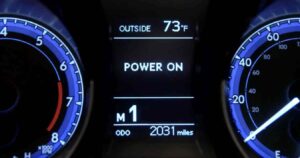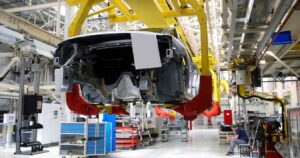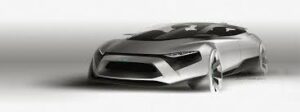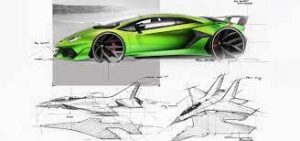In recent years, the automotive industry has been undergoing a remarkable transformation, with a significant shift towards greener and more sustainable transportation options.
As concerns about climate change and air pollution continue to rise, electric cars and hybrid cars have emerged as viable alternatives to traditional gasoline-powered vehicles.
While both types of vehicles share the goal of reducing emissions and promoting eco-friendliness, there are distinct differences between them.
In this article, we will explore the 10 key differences and facts about electric cars and hybrid cars, shedding light on their unique features and benefits.
Table of Contents
Toggle1. Powertrain Technology
The most fundamental difference between electric cars and hybrid cars lies in their powertrain technology. Electric cars, as the name suggests, are entirely powered by electricity.
They rely on rechargeable battery packs to store energy, which then powers an electric motor that propels the vehicle.
On the other hand, hybrid cars combine an internal combustion engine (usually gasoline-powered) with an electric motor.
This combination allows them to utilize both power sources, offering increased flexibility and efficiency.
2. Fuel Efficiency
When it comes to fuel efficiency, electric cars are the clear winners. Since they run solely on electricity, they have zero tailpipe emissions and can achieve the equivalent of hundreds of miles per gallon.
Hybrid cars, while more fuel-efficient than conventional gasoline vehicles, still require some amount of fuel to operate.
However, the electric motor in hybrid cars helps improve their overall fuel efficiency, making them more economical compared to traditional cars.
3. Range
Range is a critical factor for many car buyers, as it determines how far a vehicle can travel on a single charge or tank of fuel.
Electric cars have made significant advancements in recent years, with some models offering ranges of over 300 miles on a single charge.
However, this is still a concern for some potential buyers, as it can take longer to recharge an electric car compared to refueling a gasoline vehicle.
Hybrid cars, on the other hand, typically have a longer range since they can rely on their gasoline engine as a backup.
4. Charging Infrastructure
One of the challenges for electric car owners is the availability of charging infrastructure. Although the number of charging stations is increasing, it still lags behind the widespread availability of gasoline stations.
However, efforts are being made to expand the charging network to ensure convenient access for electric car users.
Hybrid cars do not face this issue as they can be refueled at any gasoline station, providing more flexibility for long-distance travel.
5. Environmental Impact
Both electric and hybrid cars have a significantly lower environmental impact compared to conventional gasoline-powered vehicles.
Electric cars produce zero tailpipe emissions, resulting in cleaner air and a reduced carbon footprint. Hybrid cars also offer improved fuel efficiency and lower emissions compared to traditional cars, making them a greener choice.
However, it’s important to consider the source of electricity used to charge electric cars, as it can still be derived from fossil fuels in some regions.
6. Cost
The cost of electric and hybrid cars has been a deterrent for many potential buyers, although prices have been decreasing as technology advances.
Electric cars tend to have a higher upfront cost due to the expensive battery technology, but they offer lower operational costs since electricity is generally cheaper than gasoline.
Hybrid cars, on the other hand, are usually priced slightly higher than their gasoline counterparts due to the additional components. However, they can provide savings on fuel expenses over time.
7. Performance
Electric cars are known for their impressive acceleration and instant torque delivery. The electric motors in these vehicles provide quick and smooth acceleration, delivering a thrilling driving experience.
Hybrid cars also offer good performance, thanks to the combination of their internal combustion engine and electric motor.
While they may not match the sheer power of some electric cars, hybrids provide a balance between efficiency and performance.
8. Maintenance
Electric cars have fewer moving parts compared to conventional gasoline vehicles, which means they generally require less maintenance.
They have no engine oil to change, no spark plugs to replace, and fewer components that can wear out over time.
Hybrid cars, although more complex than electric cars due to the combination of two power sources, still require less maintenance compared to traditional gasoline vehicles.
9. Noise
One notable difference between electric and hybrid cars is the level of noise they produce. Electric cars are almost silent, thanks to the absence of an internal combustion engine.
They offer a serene and peaceful driving experience, free from the rumbling noise associated with traditional cars.
Hybrid cars, although quieter than their gasoline counterparts, still produce some engine noise when the internal combustion engine is in use.
10. Driving Experience
Driving an electric car or a hybrid car can be a unique and enjoyable experience. Electric cars offer a smooth and quiet ride, with instant torque and responsive acceleration.
The regenerative braking system in electric and hybrid cars also allows for energy recovery while decelerating, improving overall efficiency.
Hybrid cars provide a familiar driving experience similar to traditional cars, with the added benefits of improved fuel economy and reduced emissions.
In conclusion, electric cars and hybrid cars are paving the way for a greener and more sustainable future of transportation.
While electric cars offer zero tailpipe emissions and impressive performance, hybrid cars provide a combination of gasoline and electric power for increased flexibility and range.
The choice between the two depends on individual preferences, driving needs, and the availability of charging infrastructure.
Regardless of the option chosen, both electric and hybrid cars contribute to reducing our carbon footprint and moving towards a cleaner environment.
























